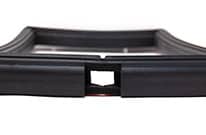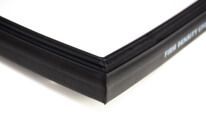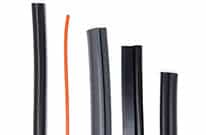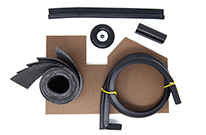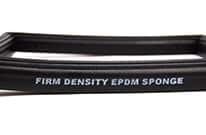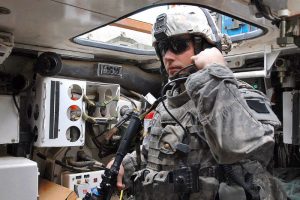 Americans say “Zee” for the letter Z. Canadians say “Zed” instead. In both North American countries, their militaries say “Zulu” so that radio or telephone messages can be understood clearly. If you’re a defense contractor that makes military vehicles, it’s important to know you’ll receive exactly what you asked for. Elasto Proxy, a trusted member of the defense supply chain, can custom-fabricate thermal acoustic insulation that meets all of your requirements.
Americans say “Zee” for the letter Z. Canadians say “Zed” instead. In both North American countries, their militaries say “Zulu” so that radio or telephone messages can be understood clearly. If you’re a defense contractor that makes military vehicles, it’s important to know you’ll receive exactly what you asked for. Elasto Proxy, a trusted member of the defense supply chain, can custom-fabricate thermal acoustic insulation that meets all of your requirements.
In this product overview, you’ll learn about two types of thermal acoustic insulation – each with part numbers that begin with Z. So whether you say Zee, Zed, or Zulu, you can count on Elasto Proxy’s U.S. and Canadian offices to support the mission every time.
ZTBRA Acoustic Thermal Insulation
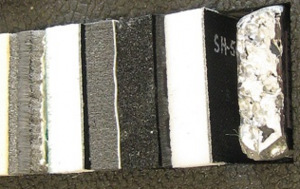 ZTBRA thermal acoustic insulation is a sandwich-like composite with the following ingredients:
ZTBRA thermal acoustic insulation is a sandwich-like composite with the following ingredients:
- aluminum foil or Mylar facing
- polyester (PE) or polyurethane (PU) open cell acoustic foam
- polyvinyl chloride (PVC) barrier material
- pressure-sensitive adhesive (PSA) with a special liner
The aluminum foil or Mylar facing reflects radiated heat and provides improved resistance to fluids and tearing. This foil or facing is laminated onto the PE or PU foam, an open cell acoustical material that absorbs the low frequencies common to big diesel engines. The PVC barrier material also helps to block the passage of sound, and provides resistance to liquids and gases such as water and water vapor. The special PSA liner peels easily for ease and speed of installation.
ZTBRA thermal acoustic insulation is recommended for applications where the maximum service temperature does not exceed 300° F, and where there’s only short-duration exposure to high heat. For applications that must withstand higher temperatures or sustained levels of heat, Z3T is used. Elasto Proxy can also custom-fabricate insulation sandwiches for other, application-specific requirements. For example, we can supply engine bay insulation that resists water and detergents from wash-downs.
Z3T Acoustic Thermal Insulation
Z3T is a sandwich-like composite that’s made of these materials.
- silicone-coated fiberglass facing
- open cell silicone foam
- PVC barrier material
- PU or PE foam
- PSA with a low-density polyurethane (LDPE) liner
The silicone-coated fiberglass facing can withstand continuous temperatures of 500° F and will not deteriorate when exposed to fire. The open-cell silicone foam absorbs higher-frequency sounds. The PVC barrier blocks lower frequency sounds in the 400 Hz to 600 Hz range. The PU or PE decoupler is made of 1/4”-thick foam that prevents the transfer of vibration and sound to nearby components. Without this foam decoupler, metal components would vibrate (and cause sound). The decoupler also improves the energy absorption of the barrier.
Finally, the PSA adhesive and LDPE liner makes Z3T installation cost-effective and easy-to-install. Although Z3T is designed for higher-temperature applications, an expensive high-temperature PSA isn’t required. Rather, a commercial PSA that can withstand temperatures up to 250° F may be used. That’s because the PSA isn’t right near the heat source, and the other layers in Z3T block or absorb significant amounts of heat. The LDPE liner also strengthens Elasto Proxy’s Z3T product because, unlike paper, this plastic won’t tear when peeled and stretched.
We Speak Your Language
For over 25 years, Elasto Proxy has supplied defense contractors with low-to-medium volume quantities of high-quality rubber and plastic parts. Do you have need thermal acoustic insulation for military vehicles? Are you seeking a supply chain partner whose defense industry experience complements your own? For 25 years, Elasto Proxy has been solving sealing challenges on land, air, and sea.




